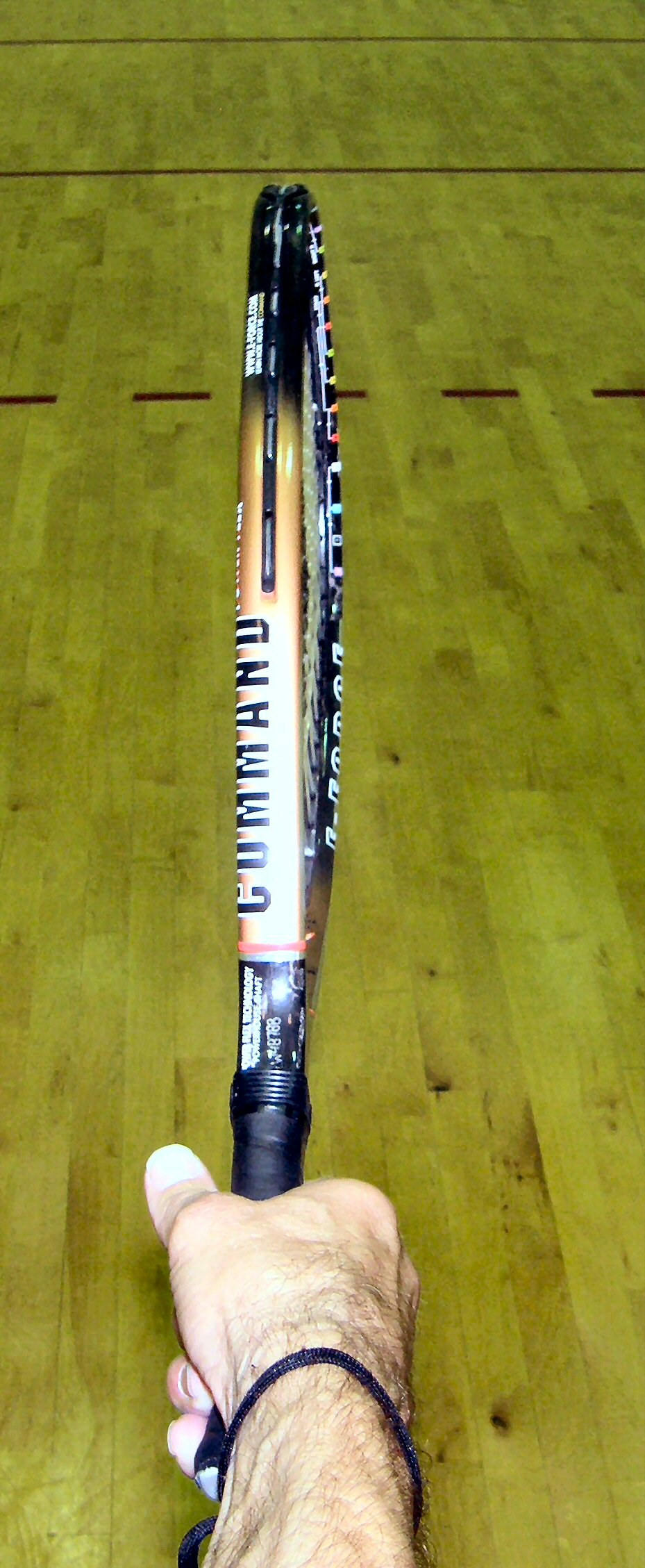
The racquet
handle has a flat side on top, two slanted, beveled edges on each side
and two flat sides. Call the middle of the top, flat edge 12 o'clock.
Call the
edge of the bevel that meets the top on the right side 1 o'clock and
the edge
of the slanted edge that meets the right side edge 2 o'clock. The
middle of the
right side edge would be three o’clock.
Now "shake hands with the racquet." Once you have gripped the racquet, extend your forefinger and your thumb. Hold the racquet loosely, down in your fingers, not up in the palm of your hand. This is the standard forehand grip. The V between you thumb and forefinger is at 12 o'clock.
For a more aggressive forehand grip, adjust the racquet in your hand so that the V between the thumb and forefinger is at 1 o'clock, just at the right beveled edge.
For an even more extreme forehand grip, adjust the racquet so that the V is at the 2 o'clock position. This position gives you more power, but is less forgiving than the more standard forehand grips. You must keep your elbow "in the slot" and hit the ball at the front of your front foot. If you hit the ball deep in your stance or allow your elbow to fly out away from your body (so that the butt of the racquet never faces the front wall), you are very likely to skip the ball.
You can also generate the extreme forehand grip by holding the head of the racquet in your left hand so that the racquet is parallel to the floor and putting the racquet on your left side at about waist level, as if it were a sword in a sheath. Reach across your body and grab the handle with your right hand. Pull the sword from the sheath. Now, extend your pointer finger and your thumb. That is the extreme forehand grip.
Remember, the more extreme the grip, the more power, but also the higher the chance of skipping the ball.